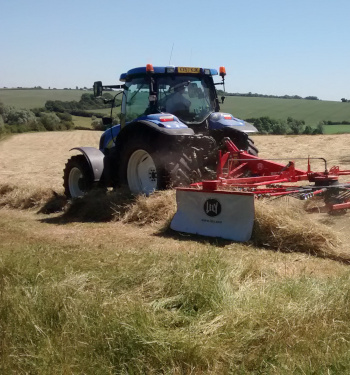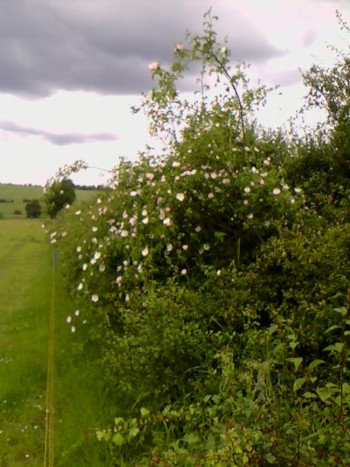I first came across the term ‘succession’ in a biological context during my ‘A’ levels, many years ago. Unlike most of the stuff included in those exam courses, it really caught my attention. It wasn’t until well into the first year of the biology degree course I later scraped on to, that I noticed it was the bits with ‘ecology’ in the title that I actually enjoyed, and this is where I came across the concept of succession again. Genetics, physiology and microbiology left me cold, even in a warm lab, but anything ecological tended to involve being outside, possibly in a wood or even on a beach and often ended with a visit to a pub.

A little less of this…
Animals move in as soon as food and shelter become available, then after more years, slower growing species – oak and ash, begin to establish themselves. The result after many years is known as a ‘climax’ community which in theory is stable and unchanging. I realise things have moved on since my studies ended thirty-five years ago, but in essence, that’s succession. Drive along Clophill Road past Cainhoe Manor and the last field on the right demonstrates succession beautifully. Less than ten years ago it was completely open. Now apparently abandoned, it is covered with hawthorn and other shrubs and I see there are small oaks pushing through quite happily. Give it another 15 years and I will have to describe it as “the wood on the right…”

..and a little more of this?
There is a lot of talk currently of ‘rewilding’ – it’s even happening in Ambridge – simply leaving land to its own devices. Or to put it another way, letting succession happen. The environmental writer and campaigner, George Monbiot, suggests that a great deal, if not all, of what is now grassland in the UK, that’s producing animals for the meat and dairy industries, should be left to go wild. And that’s a very large amount of land! It’s an interesting and unsettling thought that as we eat fewer animal products; reserving meat for special occasions and opting for manufactured meat substitutes, we will need to find other uses for all the grassland that’s currently home to sheep and cattle. This could have significant benefits for wildlife and massive effects on farming and the British landscape. Next time you pass that field on the junction of the A507 and Clophill Road, take a look and imagine that kind of dense scrub growing over the Peak District, Dartmoor or the meadows around Cow Bridge.
We know our cattle produce a cocktail of the warming gases methane and carbon dioxide, even though being grass fed, their contribution is smaller than those fed on grains. We already think of our beef as something for a special occasion and are content to sell it in the knowledge that it’s the produce of animals that are well cared for, unstressed, mainly grass fed and free from growth hormones and unnecessary antibiotics. But if farming is to change in a way that’s even half as dramatic as Mr Monbiot suggests, it will affect most livestock farmers and we are beginning to think about how we might change what we do. Because a significant part of our business already involves growing trees, we are considering planting more hazel, but we are also pondering on rewilding – letting succession off the leash – and reducing grazing pressure on our grassland. Hedges could become broader, those drifts of hawthorn and bramble in the meadows, so attractive to all sorts of birds and bugs, might spread and form protection from grazing for young trees that eventually would grow to maturity. Some cattle might well be involved, so some beef could be for sale. The result would be a creeping change in the landscape. It will depend to some extent on where the government takes incentives, post-Brexit, but it sounds exciting. How wonderful to use a natural process that originally captured my imagination at the age of sixteen, to shape a landscape.
